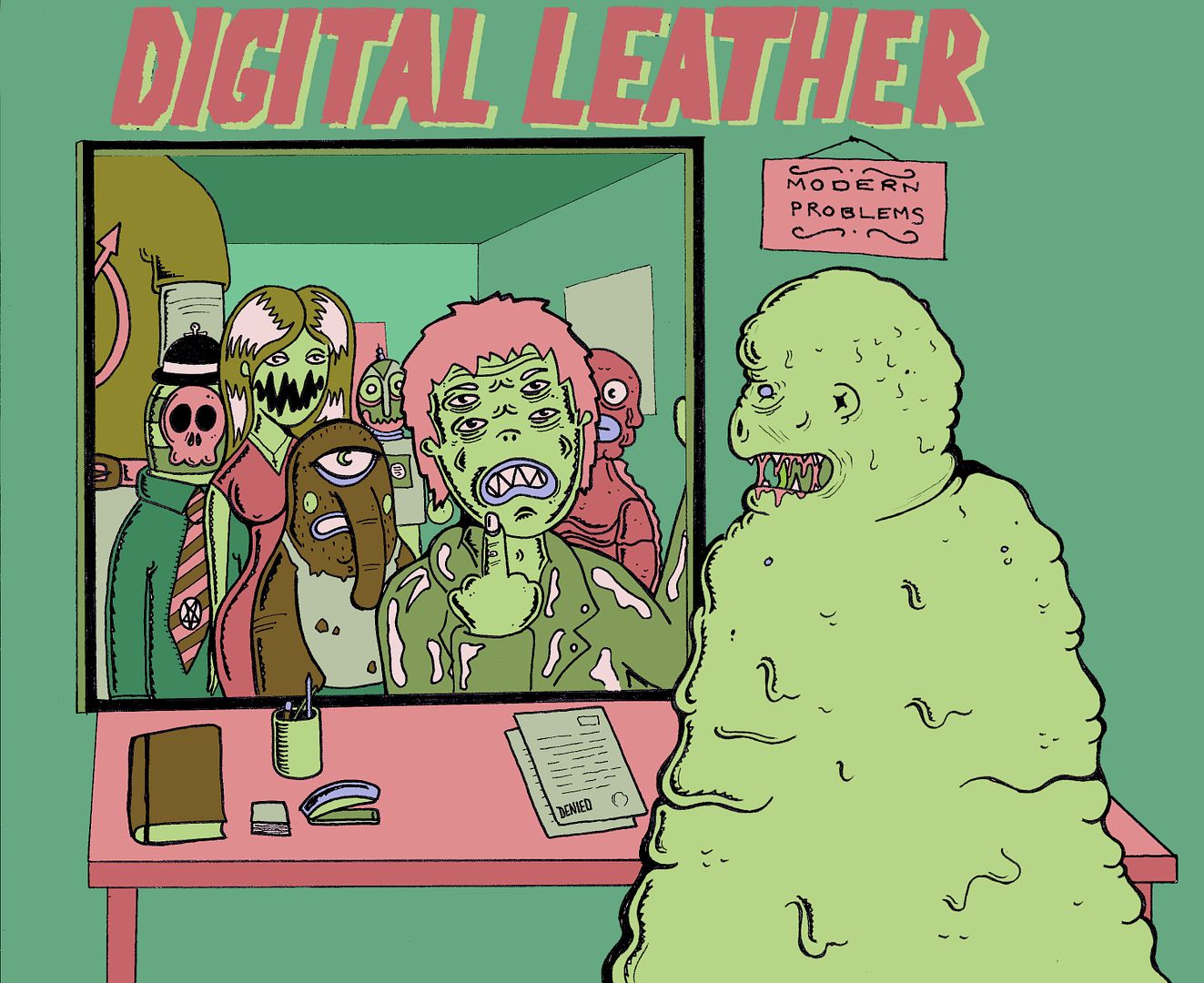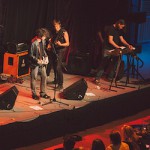Photo of Digital Leather at Lincoln Calling 2011 by Shannon Claire
by Samuel Segrist
In the social circles of recording engineers, a frequent topic of conversation concerns the role technology plays in advancing or hampering musicians’ creativity. This often leads to debates of speculation: What would the Beatles’ music have sounded like if they had recorded with computers instead of four-track recorders? What would the Ramones have sounded like if they had started in this century, eschewing 1970s NYC-punk music for drum machines and synthesizers?

Modern Problems, the latest release by Omaha’s Digital Leather, is an answer to that second question. With its buzzy tones, digital drumbeats and “needle-in-the-red” production values, there are times when it seems to be an aesthetic choice to maximize the harshness of digital recording, as evidenced by the trebly percussive sounds throughout. This is music that is designed to be played on 21st-century playback systems: iPod docks, earbuds, computer speakers, systems designed to cut through the din of modern life rather than to provide soothing fidelity.
There is a guiding and consistent aesthetic to most of the songs where, under a hazy wall of noise, various elements percolate and drive the songs along. These elements include fuzz bass, Strokes-ish jangle guitars with atmospheric echoes, synth-pop drum beats, and most prominently, vocals that call to mind a variety of distinctive singers.
Early on, the verses in “Decoys” have a similarity to the laid-back quality of Damon Albarn, but this switches on the chorus with vocalist Shawn Foree’s spot-on appropriation of Joey Ramone’s signature way of singing “oh yeeahh!” The “yeeaahs” and “who-oh-ohs” crop up occasionally on other tracks, and while initially it seemed this little affectation was the only similarity to the original American punk band, there is a Ramonesian quality to this album in that the songs all have a poppy immediacy to them. Most of the choruses are arranged around a repeated phrase rather than rhyming melodies. This style of singing works very well for their short, mid-tempo songs.
Foree’s overdriven vocals are more rhythmic in nature, similar to the staccato delivery and tone of Ian Curtis from Joy Division, which don’t lend themselves to vocal pyrotechnics or histrionics. In fact, during the penultimate track, “The Man With No Emotion,” Foree, in between singing about puppies and kittens dying, repeatedly declares that he doesn’t feel emotions. After a while, it begins to sound like he’s telling the truth about his lack of feeling.
At times, it is the guitar that provides the emotional resonance of the song. Such is the case with the guitar solo on “Soup.” This vocal detachment is one component of the cool aesthetic, though the hints of dark melancholy on track “Thrill is Gone” also work well.
By combining their various influences, Digital Leather creates a cohesive sound that does not lend itself to eclecticism. Digital Leather doesn’t genre-dip; if you like one Digital Leather song, you’ll probably enjoy most of their songs because the tunes, without sounding the same, provide variations on their synthesized love of new-wave and punk. Though their influences are several decades old, the end result is a sound that is distinctly modern, and there’s no problem with that.
Recommended if you like: the Ramones, Joy Division, the Strokes, Damon Albarn’s vocal style.
Note: The first pressing of Modern Problems LPs from FDH Records is sold out. A second pressing is due out in late February and can be ordered here.
Samuel Segrist is a contributor for Hear Nebraska. He's a member of the band Dude Won't Die, which plays The Zoo Bar on Thursday at 9 p.m. Reach Samuel at samuels@hearnebraska.org.




